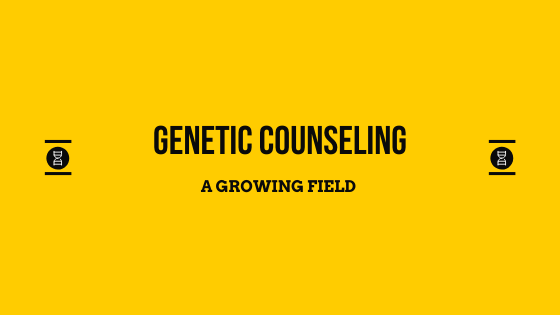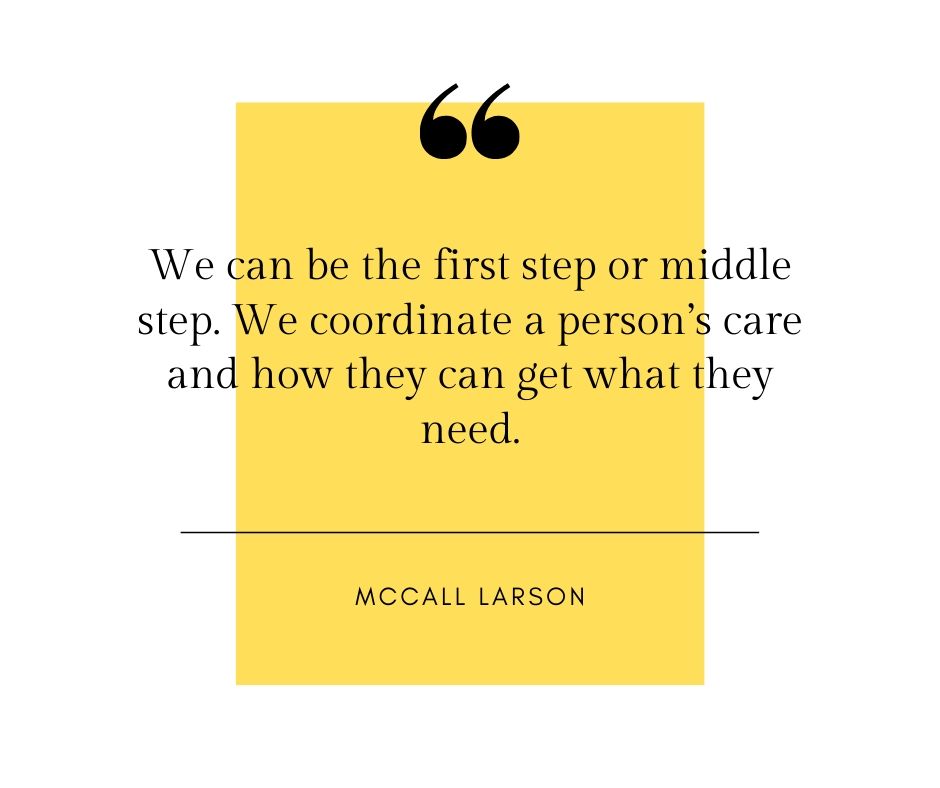See also Demand for genetic counseling leads to lack of counselors

Theresa Hogan attended a genetic counseling session with her mother in 2011. Five years later, her mother’s breast cancer recurred and Hogan was encouraged by both her mother and doctor to visit a genetic counselor.
In a simulated video created by the National Society of Genetic Counselors, Hogan sits across from Kayon Williams, a genetic counselor in the breast center at the New York Hospital in Queens, New York. Williams asks Hogan for an update on her current health, medical history and family history, noting the BRCA (breast cancer) mutation found in Hogan’s mother and maternal aunt.

Williams will spend time in her session with Hogan explaining the possibility and process of genetic testing. Her job is to make sure Hogan has all the information needed to feel comfortable and confident.
Williams’ field of genetic counseling is projected to grow 29% between 2016 and 2026, according to the Bureau of Labor Statistics in 2019.
The National Society of Genetic Counselors defines genetic counseling as a way to “evaluate and understand a family’s risk of an inherited medical condition.”
Genetic counselors can help patients order genetic testing, interpret results, explain what is being tested and determine what testing would be most beneficial for a patient, said McCall Larson, a genetic counselor at Utah Valley Regional Medical Center in Provo.
“We can be the first step or middle step. We coordinate a person’s care and how they can get what they need,” she said.
Larson said cancer is the largest area of genetic counseling, helping more patients than other areas like prenatal, pediatric and cardiology.
“Cancer 20 years ago was not a big field, now it’s huge,” she said.
Larson also said people who are diagnosed with cancer or who have a family history of cancer are encouraged to see a genetic counselor. She helps patients diagnosed with cancer determine what chemotherapy should be done and what surgeries will be best.
“There are certain chemotherapy or radiation treatments or surgeries that are more beneficial for certain genetic mutations. So they are coming in for their own treatment purposes,” she said.

For those who do not have cancer, Larson said genetic counseling can help determine what type of genetic testing should be performed. She strives to help patients completely understand what the test will do and its limitations.
Communicating difficult genetic concepts is a challenge genetic counselors face. Larson said genetics is hard to explain and she tries to determine what learning styles are best to help each patient increase their understanding.
Kyle W. Davis, a licensed and certified genetic counselor who works in neurology, said he works to provide “an informed understanding of what (genetic tests) can do and their limitations.” At Lineagen, a diagnostic center in Salt Lake City that does genetic testing for children with autism or developmental delay, Davis also aims to communicate the current limitations of the field of genetics.
“There’s just so much data that we get and so much that we don’t know—that we are still trying to learn,” Davis said.
According to a study published in the medical journal Health Affairs, as of August 1, 2017, there were approximately 75,000 genetic tests on the market. These numbers include both tests from labs like the one Davis works at and popular direct-to-consumer tests like 23andMe and Ancestry.
“From what I’ve seen so far, a lot of people who have done the direct-to-consumer test still end up coming to see me because the direct-to-consumer test doesn’t test for everything you need,” Larson said.
Davis said that direct-to-consumer tests aren’t designed to give a diagnosis.
“There are so many genetic tests and there is a lot of confusion over what they do or what they don’t do,” Davis said.
Larson said because of this, anyone who gets a direct-to-consumer test should see a genetic counselor to answer questions and get a greater understanding of the implications of results.
Davis and Larson both said increases in technology and knowledge have led to a greater need for genetic counseling and licensed and certified genetic counselors.
“We know a lot more about our DNA now and we’re learning even more,” said Larson.




